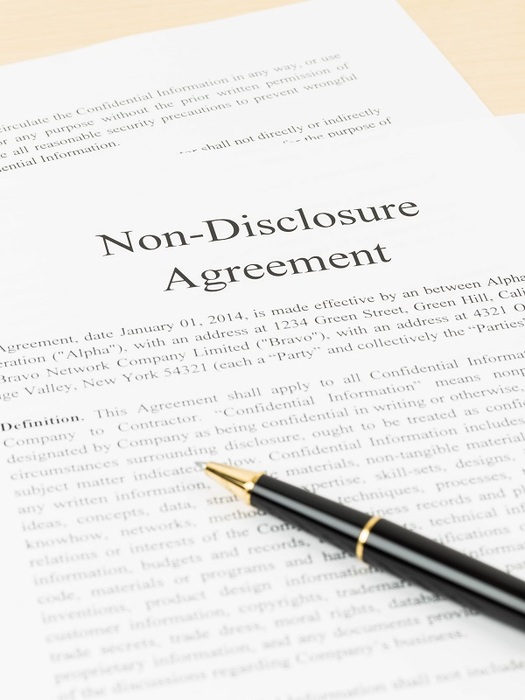

Whether they are necessary or not, personal injury settlement agreements often include on-disclosure agreements, especially in, but not limited to, medical malpractice settlements. A nondisclosure agreement (NDA), or confidentiality clause, is a legal contract between two or more parties that signifies a confidential relationship exists between the parties involved (investopedia.com). In plain English, an NDA is an agreement to keep the settlement secret and confidential. Defendants often ask for confidentiality because they fear that they will be seen as guilty when they agree to settlements. The question: Is including an NDA a good idea for your personal injury settlement?
As an article presented at an ABA conference explained it, “Attorneys for injury victims are all too familiar with defendants’ demands for blanket secrecy. …The confidentiality provisions that defense lawyers insist on often go well beyond keeping the amount and terms of the settlement secret; they also require the plaintiff and the plaintiff’s lawyer to keep silent about the facts underlying the case.
“Pressured by powerful defendants and working with clients exhausted by litigation, many plaintiffs’ attorneys feel that they have no choice but to agree. In fact, the binding ethics rules in most jurisdictions provide strong grounds for resisting such secrecy clauses.”
According to the American Bar Association (ABA)’s GPSOLO magazine, “Confidentiality raises numerous problems. …It can be bad for clients, bad for lawyers, and bad for the legal system.”
What are these problems? First of all, if there has been wrongful conduct, non-disclosure prevents the public from knowing about it. The legal system in the U.S. is set up to, among other purposes, protect the citizenry from wrongful conduct. Confidentiality can also interfere with court procedures, which are supposed to administer justice evenly.
American taxpayers foot the bill for our legal system, which provides government employees, public defenders, courts, and buildings. This entitles citizens to be able to see all aspects of the legal process, including settlements arrived at through the court system. And speaking of taxes, the U.S. Tax Court says that a confidentiality clause must be supported by sufficient and clearly stated consideration—otherwise, the NDA can cause the IRS to assign any “just or fair amount” to the confidential amount involved in the settlement.
The plaintiff may also be threatened in case of an inadvertent disclosure of the settlement terms. As the GPSOLO author Ronald Burdge concluded, “Secrecy generally serves no good purpose in the civil justice system or in a democracy.”
Richard Manger, principal of Manger Law Firm, has extensive experience in litigation and settlements, with a focus on personal injury and workers’ compensation law. We are proud of the strong relationships of loyalty and trust we develop with our clients. We go above and beyond to achieve the best possible outcome in your case. You can contact Richard Manger via email at ram@mangerlaw.com, or by calling (336) 882-2000.